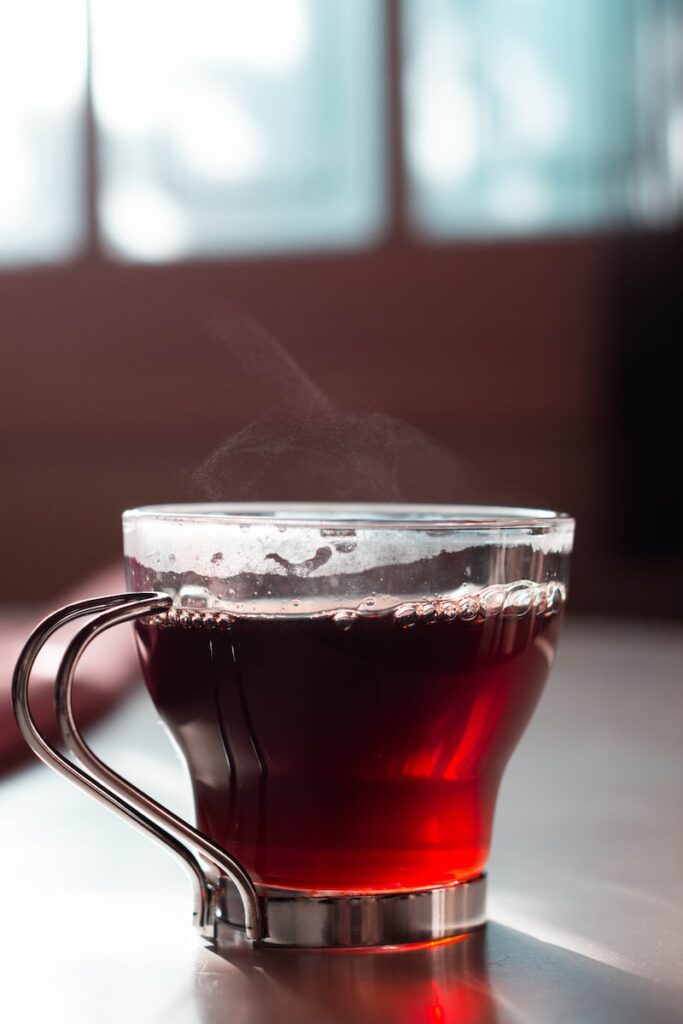Hibiscus tea is a popular herbal beverage that is made from the dried petals of the hibiscus plant. It has a tart, cranberry-like flavor and is often consumed for its potential health benefits. Here are some potential benefits of hibiscus tea:
- May lower blood pressure: Some research suggests that hibiscus tea may help lower blood pressure in people with hypertension.
- May improve cholesterol levels: Some studies have found that hibiscus tea may help lower cholesterol levels, which may reduce the risk of heart disease.
- May have antioxidant effects: Hibiscus tea is high in antioxidants, which may help protect cells from damage caused by free radicals.
- May aid in weight loss: Some studies have found that hibiscus tea may help promote weight loss by increasing metabolism and fat oxidation.
- May have anti-inflammatory effects: Some research suggests that hibiscus tea may have anti-inflammatory effects, which may be beneficial for people with inflammatory conditions such as rheumatoid arthritis.
Here’s how to make an tea recipe:
Ingredients
- 1 cup water
- 1 tablespoon hibiscus tea leaves or 1 hibiscus tea bag
- Honey or other sweetener (optional)
Directions
- Bring the water to a boil in a small saucepan.
- Add the hibiscus tea leaves or tea bag to the boiling water.
- Reduce the heat to a simmer and let the tea steep for 5-10 minutes, or until it reaches the desired strength.
- Remove the tea leaves or tea bag from the water.
- Add honey or other sweetener to taste, if desired.
- Pour the tea into a mug and enjoy.

You can adjust the strength of the tea by adding more or less hibiscus tea leaves or steeping the tea for a shorter or longer period of time. Hibiscus tea can be served hot or chilled, and can be enjoyed on its own or with a slice of lemon or other citrus fruit.
The optimal amount of hibiscus tea to consume for blood pressure-lowering effects is not well established. Some research suggests that drinking 3 cups of hibiscus tea per day may be effective in lowering blood pressure in people with hypertension.
However, it is important to note that the blood pressure-lowering effects of hibiscus tea may vary from person to person and may depend on other factors such as age, overall health, and the presence of other medical conditions.
